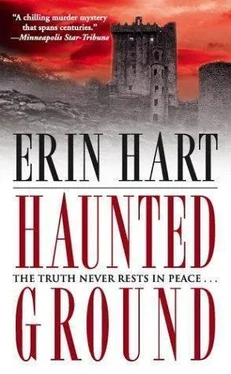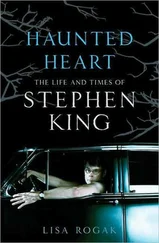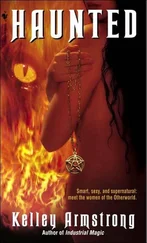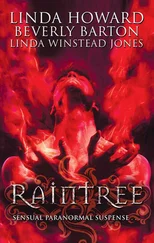“I’m afraid my cousin Hugh is away at the moment, Detective. I assume he’s the one you’ve come to see.”
“Actually, you’re the person I had hoped to find at home today,” Devaney replied.
Lucy Osborne returned his level gaze. “I’m at home every day, Detective.”
“I wonder if I might ask you a few questions. Please, continue whatever you were doing. I won’t take up too much of your time.” She led him down the hall to a room where she was in the midst of doing some flower arrangements. Devaney positioned himself on a stool across the table so that he could watch her through the spray of roses as she worked.
It was Lucy Osborne who spoke first: “What can I do for you, Detective?”
“I just had a few questions about Mina Osborne’s disappearance.”
“I thought Hugh mentioned that the case had been given over to some sort of national task force.” She knew about the referral. Devaney saw that he’d better tread carefully.
“That doesn’t necessarily mean the local police have given up. Besides, the task force are all the way over in Dublin. It’s our duty to be their eyes and ears in the community.”
“I understand that you had no control over what people would say when that”—she searched for the right word—“that person was found in the bog. But I must tell you, I don’t think it’ll do any good to stir things up all over again.”
“It’s an ongoing investigation.”
“Of a nonexistent crime. Hugh’s wife left him, Detective. It’s unfortunate, certainly, but what possible concern can it be to the police?”
“That’s why I’ve come to you. In the past, most of the attention has focused on Mr. Osborne as chief suspect, but I’m wondering if we haven’t been overlooking some of the other, perhaps less sinister possibilities.”
“And just exactly how may I be of help? I have nothing to add to any of my earlier statements. I’m sure they’re in your files.”
“I’m trying to find out more about Mina. Her habits, her usual routine, her circle of friends and acquaintances. I’m trying to get closer to who she was, to see if that might not shed some light on the case.”
“I’m not sure I can be of any assistance to you. We were not close.”
“Still, you lived in the same house for several years.”
“It’s a very large house, Detective.” The woman’s manner softened. “I don’t mean to be unhelpful, but we led almost completely separate lives.”
“But surely you could offer a few details about how she spent her time here.”
“Well, it was clear to me from the start that she wasn’t remotely interested in the running of the household, and it was just as well. I can’t imagine—” Lucy Osborne evidently couldn’t stop herself picturing the disaster that would have befallen if Mina had been interested, and gave a small shudder. “Neither she nor Hugh was much use at that sort of thing. She did have some ability as a painter, I believe, though her work was never really to my taste. Hugh set up a studio for her at the top of the house, but the smell of paint evidently disagreed with her. And after the child was born, she rarely ventured up there. The place is strewn with half-finished canvases.”
“If she wasn’t painting, what did she do?”
“I believe she was a great reader. Always leaving piles of books about the house.”
“And who were her friends? Did she socialize much with anyone in the town?”
“I’m not sure she had any friends here. She did have ties in England, of course, school friends and the like, but—” Lucy Osborne hesitated. “The only person I remember her seeing on a regular basis was the priest, I can’t recall his name.”
“Father Kinsella?”
“Yes, that’s it. She may have mentioned him from time to time.”
Devaney’s thoughts leapt back to the letters in the confessional: He knows where they are. Maybe he’d been too hasty in assuming that the “he” in this case referred to Hugh Osborne. What if it meant the person on the other side of the confessional wall?
“Was Mina happy here?”
“I was not in her confidence, Detective.”
“But perhaps you have an impression about how she and her husband were getting on at the time of her disappearance.”
“I’m afraid I’m not in the habit of prying into other people’s private affairs. I believe they were reasonably happy.” She paused briefly. “At least they always seemed so, in spite of the obvious…difficulties when people from such dissimilar backgrounds decide to marry.”
“What difficulties would you say they had, in particular?”
“Nothing of any great consequence. But a child always complicates matters, Detective. Especially when the parents come from such divergent worlds.”
“Surely a child can learn from both,” Devaney said.
“But the tragedy is that he can never really belong to either. Wherever he goes, such a child will always be an outcast. My view of the situation may sound harsh, Detective, but it’s based in reality. The world can be a pitiless place.”
Devaney remembered what little he knew of this woman’s circumstances, and considered her statement for a moment. “Did they have any disagreements about how to bring up their son?”
“I never heard them argue.” Her reply left the question open, to be asked again another way, even as it condemned indiscretion as a sin.
“But you felt there might be some tension on the subject?”
“I really couldn’t say.”
“And at the time of the disappearance? Was there any particular point—even a seemingly minor one—that remained unresolved?”
Lucy Osborne stopped her work. “Detective, I’m not about to feed any false impression you may have that my cousin was not completely devoted to his wife. It simply isn’t true.” She had finished the first arrangement and started in on the second, clipping the end of each flower before dethorning it and wrapping it in wire.
“Of course, I’m not sure I can say the same about her.”
“Go on,” Devaney said.
“On the night before she went away,” Lucy said, and he sensed she was measuring the weight of each word as she twined the green wire along the stem of a rose, “I did happen to overhear her on the telephone; I assumed she was speaking with Hugh. I could tell she was upset, but then she was often emotionally overwrought. I couldn’t hear what she said, but I wouldn’t characterize the conversation as an argument.”
“How would you characterize it?”
“I thought there was a note of disappointment in her voice. I couldn’t say any more than that.”
“Would you call your cousin a possessive man, Mrs. Osborne?”
She fixed him with an ironic look that said she wasn’t that easily fooled. “So, you haven’t entirely given up on him, Detective? But to answer your question, no, I would not. If anything, Hugh was always far too willing to give up his own ways to please his wife.”
“And what about Mina? How do you think it would have affected her to learn that her husband had other women?”
“I’m not stupid, Detective. I know what people have been saying about Hugh and that McGann woman. But it isn’t true.”
“How can you be so sure?”
“Hugh was devoted to his wife. Rather foolishly devoted, as it turned out.” It struck Devaney at that moment: throughout this entire conversation, Lucy Osborne had never once spoken Mina’s name. It was always “she” or “my cousin’s wife,” and Christopher was “the child.” He wasn’t sure why this disturbed him, exactly, but he filed it away.
“Have you any idea of Mr. Osborne’s financial situation?” Devaney asked. “For instance, who would stand to inherit the estate right now if something should happen to him? We know he’d made provisions for his wife and son, but if she’s cleared off, as you say, maybe he’s had second thoughts.”
Читать дальше











